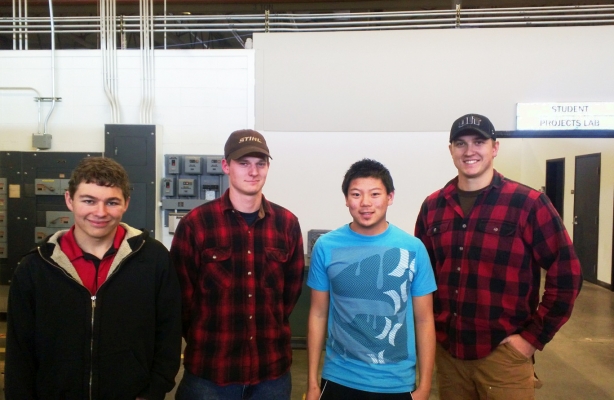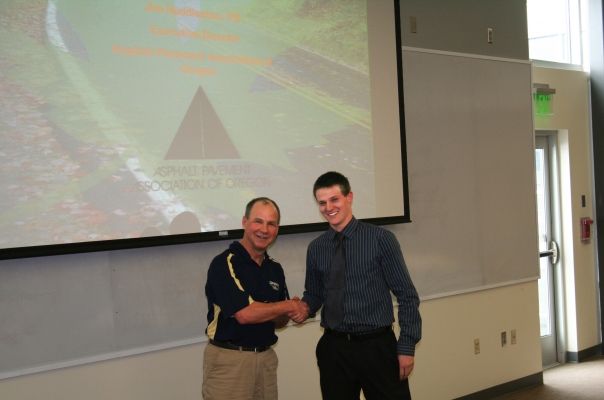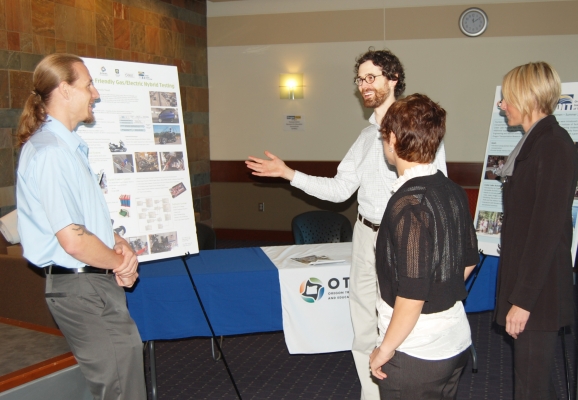OTREC researchers and students from the Oregon Institute of Technology have teamed up with Green Lite Motors to test a next-generation hybrid car.
Green Lite Motors, a clean-tech start-up company based in Portland, Ore., has developed a small, three-wheeled, gas-electric hybrid vehicle based on the platform of a Suzuki Burgman scooter.
The vehicle is classed as a motorcycle, and has all the advantages of the smaller vehicle — it doesn’t take up a whole parking space, and it gives off fewer emissions — but it also has an advanced roll-cage design, giving it the safety and comfort of a standard passenger car. It has two wheels in the front, one in the back, and mileage possibilities greater than 100 miles per gallon.
The target market areas for this two-passenger vehicle are urban commute zones, where large numbers of people travel daily from suburban homes to city-based professions.
The tiny hybrid car could change the commuting experience, minimizing gas expenditure and cutting down the time people spend looking for parking.
Green Lite has developed two prototypes.
The first...
Read more






